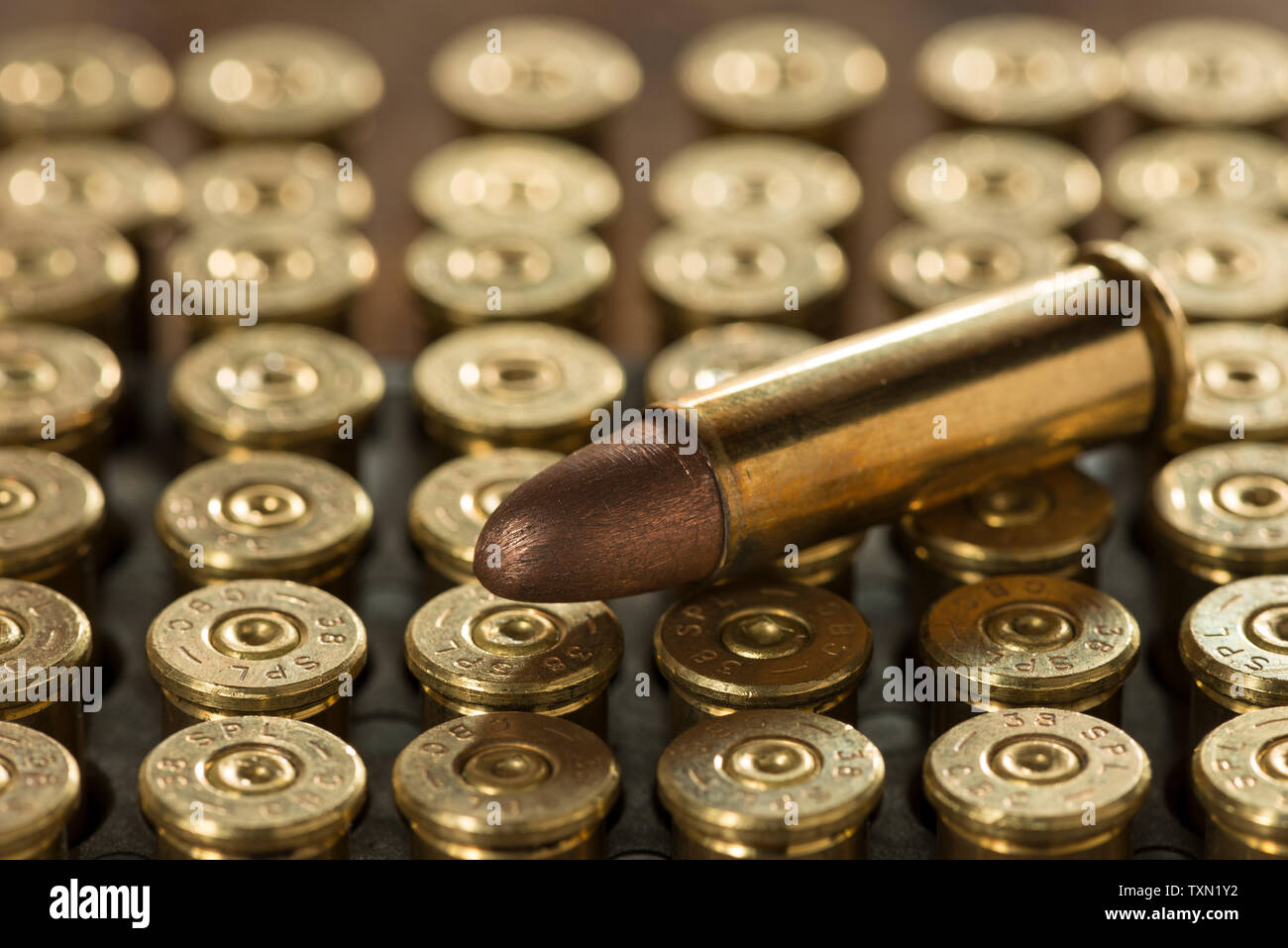Spent Shotgun Cartridge Recycling: A Comprehensive Guide To Sustainable Practices
Spent shotgun cartridge recycling is a crucial aspect of environmental sustainability and resource management in the modern era. As shooting sports continue to grow in popularity, the need for effective recycling programs becomes increasingly important. Recycling spent cartridges not only reduces environmental pollution but also contributes to the conservation of natural resources.
Millions of shotgun cartridges are used annually across the globe, leaving behind a significant amount of waste. Proper disposal and recycling of these spent cartridges can significantly reduce the environmental impact. This article will explore the importance, methods, and benefits of recycling spent shotgun cartridges, providing practical insights for enthusiasts, hunters, and environmentalists alike.
By understanding the processes and benefits of recycling, individuals and organizations can take meaningful steps toward a more sustainable future. In this guide, we will delve into the various aspects of spent shotgun cartridge recycling, offering actionable tips and expert advice to help you make informed decisions.
Read also:Lawrence Odonnell Wife A Closer Look At The Woman Behind The Iconic Tv Host
Table of Contents
- Introduction to Spent Shotgun Cartridge Recycling
- Why Recycling Spent Shotgun Cartridges Matters
- Understanding the Composition of Shotgun Cartridges
- Methods of Spent Shotgun Cartridge Recycling
- Benefits of Recycling Spent Shotgun Cartridges
- Challenges in Recycling Spent Shotgun Cartridges
- Recycling Programs and Initiatives
- Practical Tips for Recycling Spent Shotgun Cartridges
- Environmental Impact of Shotgun Cartridge Waste
- The Future of Spent Shotgun Cartridge Recycling
- Conclusion and Call to Action
Introduction to Spent Shotgun Cartridge Recycling
Spent shotgun cartridge recycling has emerged as a critical component of environmental sustainability in the shooting sports industry. With millions of cartridges being used every year, the accumulation of waste poses significant challenges to ecosystems and natural habitats. Recycling spent cartridges is not just a solution to waste management but also a step toward preserving natural resources.
Shotgun cartridges are composed of various materials, including metal casings, plastic components, and lead pellets. When these components are discarded improperly, they can contaminate soil and water sources, posing risks to wildlife and human health. Effective recycling programs aim to recover these materials, ensuring they are reused or disposed of safely.
Recycling as a Responsible Practice
For shooting enthusiasts, hunters, and environmentalists, recycling spent shotgun cartridges represents a responsible and sustainable approach to waste management. By participating in recycling initiatives, individuals contribute to reducing pollution, conserving resources, and promoting eco-friendly practices within the shooting community.
Why Recycling Spent Shotgun Cartridges Matters
Recycling spent shotgun cartridges is essential for several reasons. First, it helps mitigate environmental damage caused by improper disposal. Discarded cartridges can release harmful substances, such as lead and plastic, into the environment, leading to long-term ecological consequences. Recycling ensures that these materials are safely managed and repurposed.
Second, recycling contributes to resource conservation. Metal casings, plastic components, and other materials in shotgun cartridges can be reused in manufacturing new products. This reduces the need for extracting raw materials, conserving energy and minimizing environmental degradation.
Read also:Dirco Wont Bow To Pressure From Donald Trump Refuses To Drop Case Against Israel Despite Tariffs
Impact on Wildlife and Ecosystems
Improper disposal of spent cartridges can harm wildlife and disrupt ecosystems. Animals may ingest discarded components, leading to poisoning or physical harm. Recycling programs help prevent such incidents by ensuring that waste is managed responsibly and does not enter natural habitats.
Understanding the Composition of Shotgun Cartridges
To fully appreciate the importance of spent shotgun cartridge recycling, it is essential to understand the materials that make up these cartridges. Shotgun cartridges typically consist of the following components:
- Metal casings: Usually made of brass or steel, these casings can be recycled to produce new metal products.
- Plastic components: The wads and other plastic parts can be processed and reused in various applications.
- Lead pellets: Lead is a valuable material that can be recovered and reused in manufacturing.
- Powder charge: The propellant powder can be neutralized and disposed of safely.
Each component plays a role in the functionality of the cartridge, but also presents unique challenges in terms of disposal and recycling. Understanding these materials is key to developing effective recycling strategies.
Methods of Spent Shotgun Cartridge Recycling
There are several methods for recycling spent shotgun cartridges, each tailored to specific components and materials. These methods include:
- Material separation: Separating metal, plastic, and lead components for individual processing.
- Metal recycling: Recovering brass or steel casings for use in new metal products.
- Plastic recycling: Reprocessing plastic components into pellets or other forms for reuse.
- Lead recovery: Collecting and refining lead pellets for use in manufacturing.
Advanced Recycling Technologies
Recent advancements in recycling technologies have made it easier to process spent shotgun cartridges efficiently. Innovations such as automated sorting systems and chemical treatments allow for the safe and effective recovery of materials, reducing waste and minimizing environmental impact.
Benefits of Recycling Spent Shotgun Cartridges
Recycling spent shotgun cartridges offers numerous benefits, both environmental and economic. Some of the key advantages include:
- Environmental protection: Reducing pollution and preserving natural habitats.
- Resource conservation: Conserving valuable materials such as metal, plastic, and lead.
- Economic savings: Lowering the cost of raw material extraction and processing.
- Community engagement: Encouraging responsible waste management practices among shooting enthusiasts.
By participating in recycling programs, individuals and organizations contribute to a cleaner, more sustainable future. These efforts not only benefit the environment but also promote a culture of responsibility and stewardship within the shooting community.
Challenges in Recycling Spent Shotgun Cartridges
Despite its importance, recycling spent shotgun cartridges presents several challenges. One of the primary obstacles is the lack of awareness and education among shooters and hunters. Many individuals are unaware of the environmental impact of improper disposal and the benefits of recycling. Additionally, limited access to recycling facilities and programs can hinder participation.
Another challenge is the complexity of processing spent cartridges. The diverse materials and components require specialized equipment and expertise, which may not be readily available in all regions. Overcoming these challenges requires collaboration between governments, industries, and communities to develop comprehensive recycling solutions.
Overcoming Barriers to Recycling
Education and outreach programs can play a crucial role in addressing these challenges. By raising awareness about the importance of recycling and providing access to convenient recycling options, stakeholders can encourage greater participation and support for sustainable practices.
Recycling Programs and Initiatives
Several organizations and initiatives have emerged to promote spent shotgun cartridge recycling. These programs aim to provide accessible recycling options and educate the public about the importance of responsible waste management. Some notable examples include:
- NRCS (Natural Resources Conservation Service): Offers resources and guidance on recycling practices for hunters and shooters.
- Shotgun Cartridge Recycling Alliance: A collaborative effort between industry leaders and environmental groups to promote recycling initiatives.
- Local recycling centers: Many communities have established dedicated facilities for processing spent cartridges.
Participating in these programs allows individuals to contribute to environmental conservation while supporting sustainable practices within the shooting community.
Practical Tips for Recycling Spent Shotgun Cartridges
For those looking to get involved in spent shotgun cartridge recycling, here are some practical tips:
- Locate nearby recycling facilities: Research local options for processing spent cartridges.
- Separate materials: Sort metal, plastic, and lead components for easier recycling.
- Dispose of propellant safely: Follow proper guidelines for neutralizing and disposing of powder charge.
- Engage with local groups: Join community initiatives focused on recycling and environmental conservation.
By taking these steps, individuals can make a meaningful impact on reducing waste and promoting sustainability.
Environmental Impact of Shotgun Cartridge Waste
The environmental impact of shotgun cartridge waste cannot be overstated. Improper disposal can lead to soil and water contamination, harming both wildlife and human populations. Lead poisoning, in particular, is a significant concern, as it can affect animals and plants in affected areas.
Recycling spent cartridges helps mitigate these effects by ensuring that harmful materials are managed responsibly. This not only protects ecosystems but also preserves the natural beauty of hunting and shooting locations for future generations.
Case Studies of Successful Recycling Efforts
Several case studies demonstrate the positive impact of recycling programs on local environments. For example, a recycling initiative in a national park resulted in a significant reduction in cartridge waste, leading to improved habitat conditions for wildlife. Such success stories highlight the importance of continued efforts in this area.
The Future of Spent Shotgun Cartridge Recycling
The future of spent shotgun cartridge recycling looks promising, with ongoing advancements in technology and increasing awareness of environmental issues. As more individuals and organizations recognize the importance of sustainable practices, recycling programs are expected to expand and improve.
Innovations in material recovery and processing will further enhance the efficiency and effectiveness of recycling efforts. Collaboration between industries, governments, and communities will play a critical role in driving these initiatives forward and ensuring a sustainable future for all.
Conclusion and Call to Action
Spent shotgun cartridge recycling is a vital component of environmental sustainability and resource management. By understanding the importance, methods, and benefits of recycling, individuals and organizations can take meaningful steps toward a cleaner, more sustainable future. Participating in recycling programs, adopting responsible waste management practices, and supporting initiatives that promote sustainability are essential actions for all stakeholders.
We invite you to join the movement toward sustainable practices by recycling your spent shotgun cartridges and encouraging others to do the same. Leave a comment below sharing your thoughts on this topic, and explore other articles on our site for more insights into environmental conservation and responsible waste management.


